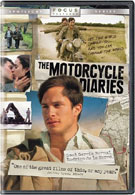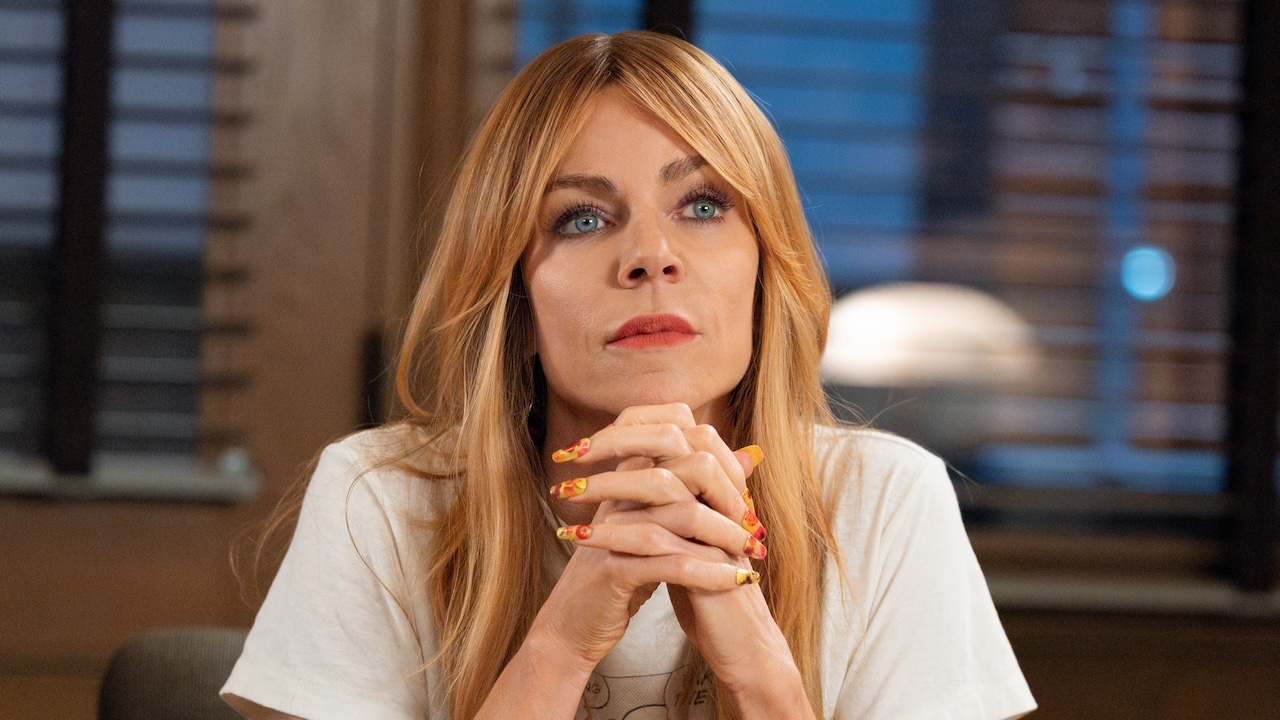What’s the difference between a biography and propaganda? Well, for starters, perspective, perhaps a little bit of the truth, and maybe even a couple of Oscars. I will admit from the start, I don’t know much about Ernesto Guevara de la Serna, known to more of the world as “Che” Guevara. I know that he grew up to become a revolutionary in Latin America, and thanks to Diarios de motocicleta (that’s The Motorcycle Diaries to you non Spanish-speaking folks) I know that he traveled around Latin America in his early twenties after living what was, until then, a seemingly sheltered life. Stepping away from his parent’s plan for him to become a doctor, Ernesto (Gael García Bernal) teamed up with pal Alberto (Rodrigo De la Serna) for a trip around Mexico that would open their eyes to the world around them and apparently eventually lead Ernesto down the path to revolution.
Unfortunately, that’s about all you get out of the over two hours that is The Motorcycle Diaries. Director Walter Salles and screenplay writer Jose Rivera decide to focus this film completely on this time in young Fuser’s life (Fuser is Ernesto’s rugby nickname which Alberto uses throughout the film). This means they neglect to explain anything more about “Che”’s future other than the fact that he eventually becomes a revolutionary and was assassinated with assistance from the American CIA. What he did to deserve such a fate, or how his revolutionary tactics affected Latin America is left out of the film, expecting the audience to either carry such knowledge with them, or feel sympathetic enough about Ernesto from what we’ve seen to feel that his murder was a tragedy. That’s the long way of saying, the film is a bit manipulative... just like a two ton elephant is a bit heavy.
That’s not to say the movie isn’t good. It’s a very interesting road picture, showing the friendship between two men as they travel around the country looking for women and cursing at each other - in other words, typical guy stuff. It isn’t even that heavy handed as Ernesto meets different groups of disparaged people - downtrodden poor or shunned lepers, until closer to the end of the film as he starts taking in the world he’s seen. Then out of nowhere the film abruptly changes and he’s delivering a political message in a toast as he bids company goodbye, leading us to realize how the world has changed Ernesto’s goals in life. The problem is once that transition happens, it’s so sudden the impact leaves one reeling, and in a “what-the-heck-just-happened” way.
After liking Ernesto for two hours, and seeing how pure and honest and idealistic the man was, it’s hard not to feel a bit manipulated by the movie. It would be like showing us Adolf Hitler at age nine for two hours, and then just telling us he was killed in a bunker at the end of the war. You can’t end with a statement like that without giving more background about the man’s life as a whole, not just the era the movie covers. And no, I’m not comparing “Che” with Hitler, I’m saying if the film is just going to cover a specific era then stick to that chapter. Don’t give us the last sentence of the novel thrown in at the end if you aren’t going to include the events leading up to it. Saying “Che” became a revolutionary doesn’t quite cover it. Was he a George Washington type revolutionary or a guerilla warfare type revolutionary? Put the ending in perspective beyond these innocent years the film covers before letting us know he was assassinated.
I wanted to like this picture more then I’ve ended up caring for it. For the first two thirds of the film it’s a good road/buddy movie, but the abrupt change in the story really soured the film as a whole for me. If I ever find myself watching The Motorcycle Diaries again perhaps I’ll try turning it off before I get to the end. Maybe by cutting out a manipulative ending I can enjoy the movie a bit more. Like the movie, the DVD release of The Motorcycle Diaries focuses on just the movie, with no extraneous information about the more notable life of Ernesto Guevara de la Serna. The few passing references to Guevara and his influences just add to the propagandist feeling of the movie as a whole.
The best of the disc’s extras is an interview with the real Alberto Granado who traveled with Guevara and adapted “Che”’s diary into the novel the movie was based on. Unfortunately, he only really discusses the things we’ve already seen in the film - problems they had with “The Mighty One” (the junk bike they begin their travels on), etc. It’s the only extra that focuses on the truth behind the movie, but its scope is so limited it isn’t as great a feature as it could have been.
Two interviews are included with Gael García Bernal, one that is about his philosophy as an actor, and another that is specifically about The Motorcycle Diaries. Bernal talks a little bit about what it was like growing up in a country influenced by Guevara, but like everyone else, doesn’t really go into what that influence was. Bernal’s philosophy as an actor is interesting though, and he seems like someone with his head firmly attached. That’s nice to see from someone up and coming, and hopefully Bernal can maintain that throughout his career.
Your Daily Blend of Entertainment News
The last two featurettes are more focused on behind the scenes of the film, with a specific “Making of” featurette, and a short interview with composer Gustavo Santaolalla. The making of the film really doesn’t go into great detail about the film, which is a shame. It would have been nice to see more of how a non-Hollywood film gets made. At least the interview with Santaolalla is neat - apparently he composed a lot of the film’s enchanting music without ever seeing the film, some before the movie was even finished. It’s quite an achievement, since the music does add to the atmosphere of the move a lot.
All in all, the DVD release of the Motorcycle Diaries is a bit disappointing. It misses a lot of opportunities to expand on “Che” Guevara and educate the audience about the man the whole movie is about. The featurettes that are included are on the dry side, leaving one to yawn and wonder why the movie tries to glorify a revolutionary they don’t want to tell you anything about.

